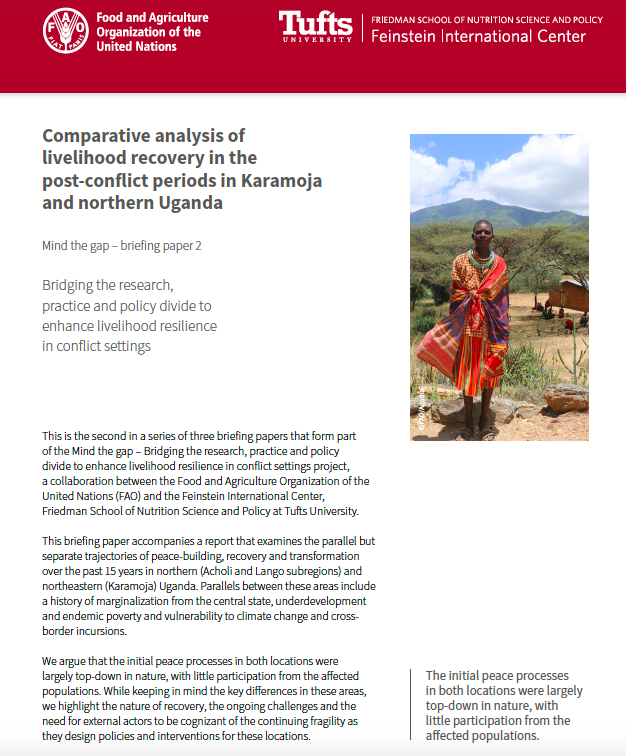This is the second in a series of three briefing papers that form part of the Mind the Gap: Bridging the Research, Policy, and Practice Divide to Enhance Livelihood Resilience in Conflict Settings project. This briefing paper accompanies a report that examines the parallel but separate trajectories of peace-building, recovery, and transformation over post-conflict periods in northern (Acholi and Lango subregions) and northeastern (Karamoja) Uganda. Parallels between these areas include a history of marginalization from the central state, underdevelopment and endemic poverty, and vulnerability to climate change and crossborder incursions.
We argue that throughout the post-conflict periods, the initial peace processes in both locations were largely top-down in nature, with little participation from the affected populations. While keeping in mind the key differences in these areas, we highlight the nature of recovery, the ongoing challenges, and the need for external actors to be cognizant of the continuing fragility as they design policies and interventions for these locations.







